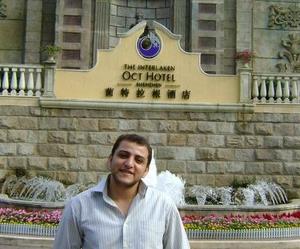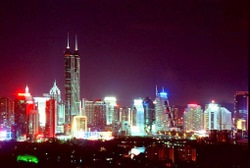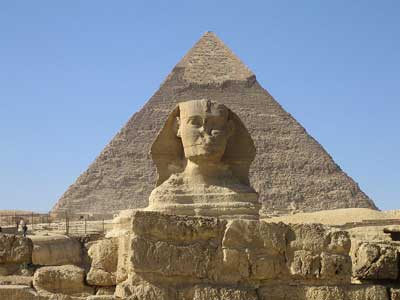
NEXTINSIGHT BRINGS YOU a series of interviews each Saturday with expatriates who call the southern Chinese metropolis of Shenzhen both their workplace and home.
Our aim is to offer insights into what could be The Next Big Thing – Shenzhen – a city whose GDP growth and population have outpaced those of its richer neighbor, Hong Kong, for as long as this writer can remember.
We also hope to bring a series of revealing snapshots on just what it takes for non-locals to live and work here, and thrive while doing so.
A common thread linking these industrious expats together is how they have taken the best from their diverse cultural backgrounds to make a name for themselves in a faraway place like Shenzhen.
The Middle Kingdom takes great pride in being a country with 56 officially recognized ethnicities. But among China’s 1.3 bln denizens, the majority Han Chinese still make up well over 90% of the total population.
Despite the fact that the country is no longer building Great Walls to keep foreigners out, expats – especially non-Han residents -- are still a relative rarity in Chinese cities compared to say New York, London or Melbourne.
But the days of putting up walls are a thing of the distant past and cities like Shenzhen, which borders the more cosmopolitan Hong Kong, are beginning to catch up in terms of their expat tallies.
In this second installment, we meet Egyptian expat Mr. Wael Elzagh, a mobile communications devices trading executive.
Pyramids to pagodas

Mr. Elzagh is no stranger to historical sites and the sight of cultural tourists. Just as popular tourist sites along the Nile are thronging with visitors vying to get their photos taken in front of the Sphynx or in the Valley of the Kings, Chinese cities like Beijing and Hangzhou see their fair share of foreign tourists looking to climb the Great Wall or take a leisurely row around scenic West Lake.
However, Shenzhen is less of a tourist magnet than a business mecca, as it is the second biggest city in China’s top exporting province – Guangdong.
Mr. Elzagh, who has been in Shenzhen for nearly a year, spends his days touring factories and electronics retail complexes, looking for products of the best quality and at the most competitive price to ship back to Cairo for distribution across North Africa and the Middle East.
He recently met with NextInsight to let us know just how a professional from an ancient civilization coped with life in another equally ancient culture.
NextInsight: How would you describe the business operating climate where you are now compared to that in your homeland?
Mr. Elzagh: The business here in Shenzhen moves so much faster and easier than in Egypt.
What are the most obvious changes you have witnessed or sensed during your time here?
Mr. Elzagh: There are very big changes in the handset models and the technology and styles, much different than even a year ago. The market is expanding rapidly every day and competition continues to intensify.
If your children (current or future) told you they wanted to settle in your current city (in China), study, work and raise a family here, how would you feel?
Mr. Elzagh: In fact, my first child was recently born. My opinion is that if he wanted to work here I do not mind, but I think it’s better to learn and raise the child in my homeland. But if he wanted to raise a family here after that, it’s his decision.
If the economy in the current city where you are slows of softens considerably, would you immediately relocate, or do you feel China is your home and you will ride out the rough times?
Mr. Elzagh: Of course not immediately. In fact I will wait and be patient. But if the economy doesn’t improve, then I will relocate and I think that is what Chinese themselves would do.
What are some of the best things about doing business in China today? What things would you most like to see changed?

Mr. Elzagh: The best things I like here in China -- and I think it’s the most attractive thing for people -- is the cheaper prices and manpower while still being able to maintain the technological development at the same time.
As for what I think should change here, I would like to see changes that also allow China to stick to its own culture more because I see signs that they are leaving their civilization and moving blindly to resemble Western civilizations. It’s not that I’m against Western civilization, but I believe that such models can’t work with all peoples.
How do you feel about the current residential property prices in Shenzhen for renting? how about for buying? how have you noticed property prices going up/down in your time here?
Mr. Elzagh: The property prices here are very high and I personally feel the changes in the prices. During my time here, buying prices for residential properties have gotten very high.
How about the cost of transportation, entertainment, and food/drink?
Mr. Elzagh: I think they are all reasonable for the average income here, but I feel they are rising gradually since I’ve been here.
Has your income risen at the same rate as inflation (rise of property/transportation, entertainment, food/drink?
Mr. Elzagh: Property prices are rising faster than my income, but I won’t admit how much... But for other things, they’re on pace and tolerable.
Is your business doing better, worse, or the same as when you first began working in Shenzhen? Why do you think that is? What are your plans to improve your business in Shenzhen over the next year?
Mr. Elzagh: For my work I have more problems than before because there is difficulty in transportation now and production takes alot longer than before. Also, spare parts are not always available and many of our existing production partners disappear if they have any economic problems. That makes it necessary for me to do research on alternative vendors and sources. I try to solve all these by diversifying my sources and I hope this hedging does the trick and reduces potential overexposure on any one supplier.
How does the cost of living in Shenzhen compare to the cost of living in your homeland? Does the cost of rent, transportation, entertainment, and food/drink make up a larger or smaller percentage of your income in Shenzhen than it would in your homeland?
Mr. Elzagh: If we compare the living costs in Shenzhen and my homeland we will find very big differences. In Shenzhen, its about 65% more expensive than my homeland but incomes here are about 40% higher than back home.
Click here to see last week's story about a German woman who believes that having a flexible attitude is the best way to thrive in a very different culture.







